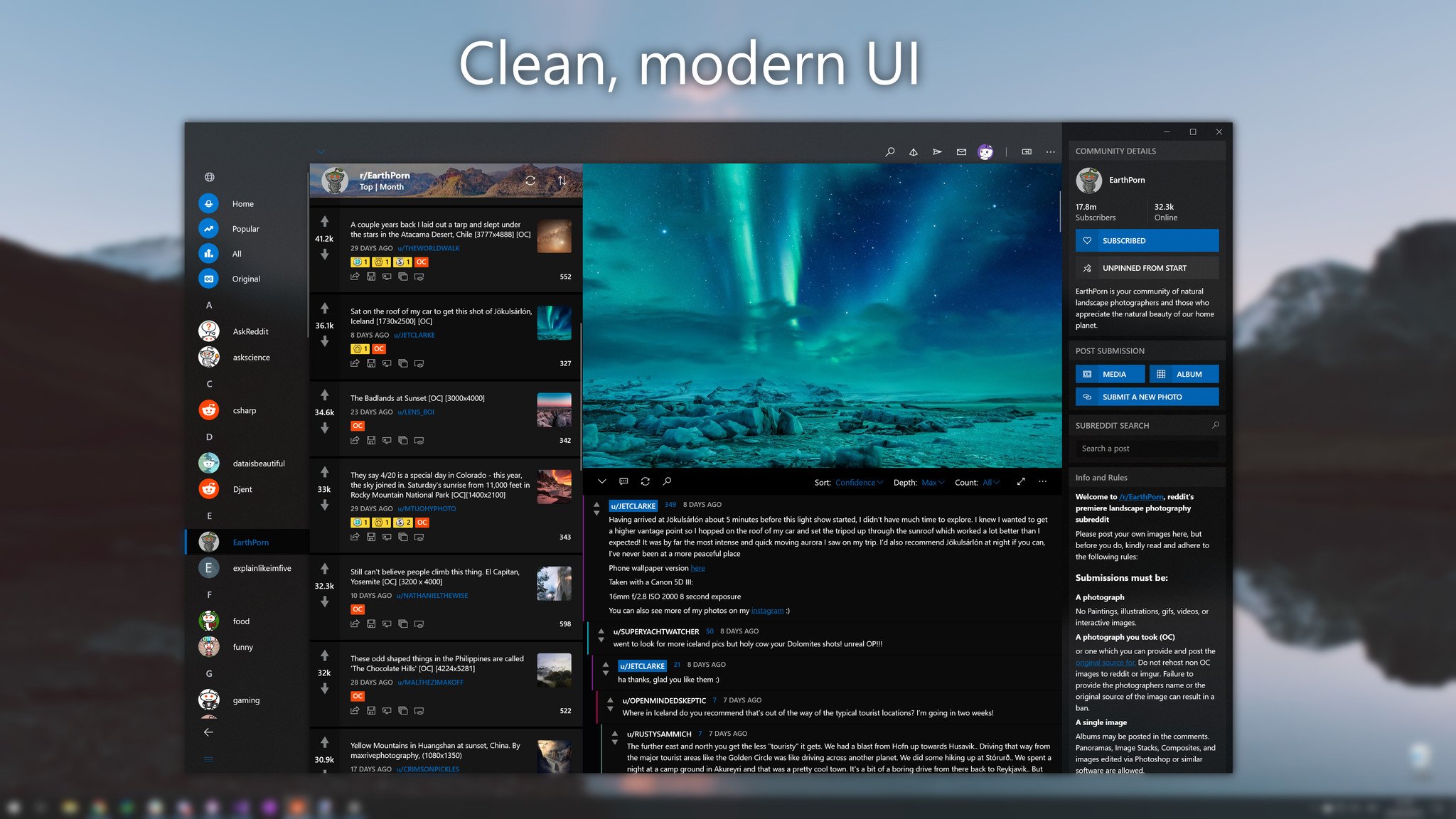From Daniel's full article:
New "Legere" UWP app for Reddit released June, 2019But are true Universal Windows Apps dead? No. In fact, they play a critical part in Microsoft's future computing experiences.
Moving away from desktop PCs to HoloLens 2, Surface Hub 2, Windows on ARM, IoT, and Windows Lite these systems are much more dependent on UWA. While Microsoft will let such devices run "classic" Win32 apps — emulated or virtualized — Win32 is by no means the primary dev platform for such systems (I'd argue Win32 is more is closer to maintenance mode than UWP).
That's where all this "UWP is dead" talk gets strange as Microsoft is betting huge on holographic computing and things like dual-screen PCs and lighter laptops as part of its future — that's UWP. The idea of people firing up Win32 Adobe PhotoShop in HoloLens or Surface Hub seems quite improbable. That's because Win32 apps are meant for desktop PCs with powerful x86 processors, not ARM, light computing, or holographic experiences.
The very basis of Windows Core OS and Windows Lite is built on UWP as the main app layer. Without UWP, Microsoft could only make legacy experiences, not new ones. There is no alternative to it.
Which is all well and good and we're still on the verge of seeing Windows 10 on ARM really take off in terms of applications, ecosystem, and - of course - hardware. But I should explain that all this comes too late for Windows 10 Mobile, with the majority of heavyweight ARM-compiled UWP applications now targetting more recent SDKs and APIs than are available on the phone (most of which date from 2016, latest).
Still, good to see Microsoft's vision for applications that run everywhere and scale is still alive, even if, as Daniel explains, there are plenty of subtleties in terms of implementation that need to be taken into account. Worth a read if you're tech-minded, anyway!

